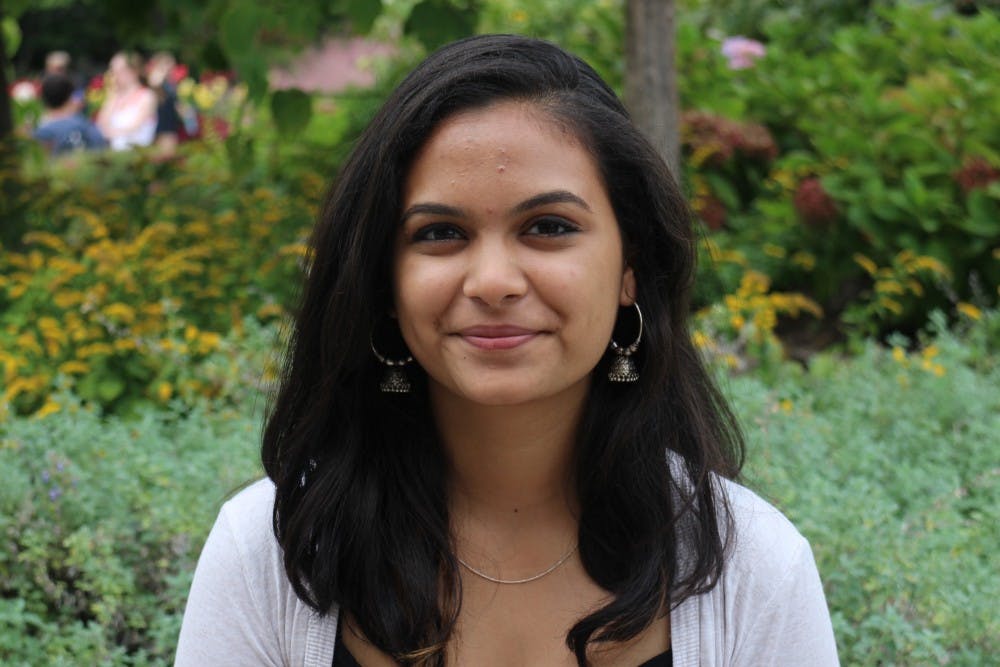Last Monday marked yet another unfortunate day for the University when anti-immigration posters were found around several buildings on campus. However, it isn’t the act itself that makes it tragic anymore, but rather the fact these hate crimes have become so repetitive at AU that the shock factor they are meant to have is slowly fading.
I asked myself why this was happening. Why was I not as angry about this act as I was about the past incidents, like the nooses found on campus and Confederate flags? What I realized is that xenophobia and racism have always been a part of my life.
I don’t need a poster from a white supremacist group to tell me that foreigners and immigrants are not treated equally or welcomed in this country. When I was living in Miami in middle school, many of my friends would make faces and not sit next to me during lunch because “my Indian food smelled really bad.”
My broadcast arts teacher was hesitant to let me be anchor because sometimes I didn’t pronounce words correctly. People wouldn’t talk to my mother because, even though her English was perfect, the accent was too thick for people to understand her. We were complimented for being “so tan,” but saw faces scrunch up for the same reason.
Here at AU, professors are confused when I tell them I don’t have an American home state as though this is a university only for Americans. SIS students are frequently bewildered over my ability to speak English perfectly and with an American accent. All of these are small signs that we, immigrants and foreigners, are looked at as “the other.” People lack an understanding about different cultures and an interest in learning about them. This narrow-minded view eventually leads to extremism.
AU is my home. I worked hard to be at AU, so how can a poster tell me otherwise? That is where the first feelings of anger and frustration come from. However, when I analyze the various interactions I have had with people in the U.S. and the U.K., this is not out of the ordinary.
It is just a direct message telling me I don’t belong, rather than a passive aggressive remark covered in a seemingly friendly conversation. While it is important to acknowledge the issues that this act from external actors presents and the obvious malicious nature of it, it is also important that we all take a moment to realize our own internal community biases toward immigrants and more specifically Latinx communities, who were targeted by these posters.
As I have learned from my past experiences, we must always listen -- especially during times when minority groups are under attack. I stand together with first generation and immigrant students at AU as well as all other minority groups. I hope that by continually speaking about our experiences, we will be able to foster a more inclusive environment and a stronger community that can combat these hate crimes, should they happen again, with a more unified approach.
Sonikka Loganathan is a junior in the School of Communication. She is a columnist for The Eagle.





